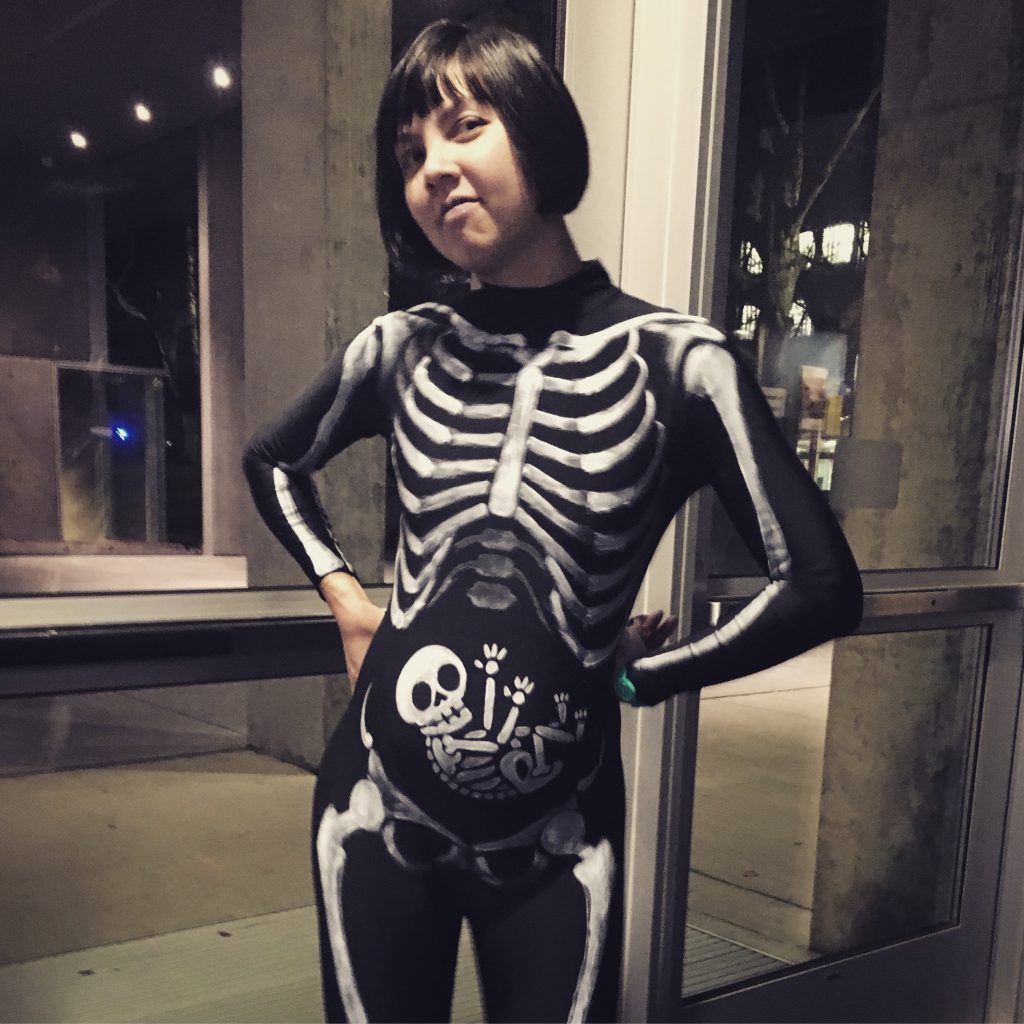
Melissa Armstrong is a PhD candidate in the Zoology Department, studying the neuroscience underlying how birds use visual information to guide their flight behavior. She holds a Bachelor of Fine Arts from Rhode Island School of Design and worked as an artist and designer for nearly a decade before deciding to return to school for her graduate work in the sciences.
At UBC, Melissa has TAed BIOL 121 (Genetics, Evolution and Ecology) three times and BIOL 459 (Neurobiology of Sensory and Motor Systems) once. She has also taught a graduate module, BIOL 548L (Visual and Oral Presentations), which focused on visualizing data and communicating science through figures, posters and talks.
What has been an interesting outcome of your TA experience?
Being a TA has provided the framework for some really interesting discussions around using fine art skills in the sciences, especially for observational lab work. I’m thinking specifically of many chats with Brett Couch about how learning to see as an artist and perhaps rethinking expectations of students to be able to draw what they see under the microscope could really benefit organismal biology education. There have been uncountable instances in my own research in the lab where my fine art training has been a huge asset, so thinking about how to convey some of that training to future scientists has made for an interesting TA experience.
What has being a TA brought to your graduate studies experience?
Other than the obvious opportunities to practice teaching and science communication skills, teaching subjects that are adjacent but not directly related to my own research has helped me think about my own work from a slightly different perspective, or has inspired ideas that I may not have thought of otherwise.
How has your unique background influenced your TA experience?
Since I do not hold a science-based undergraduate degree, I’m often learning side-by-side with my students, while also acting as their TA. I’ve often found that my lack of expertise in some topics, contrary to what one might expect given our ideas about the value of professional experience, can often be really helpful in understanding why someone might struggle with a concept. This perspective helps me come up with new ways of explaining the topic so that it is accessible at their/our level.
I’m also very comfortable saying “I don’t know” and then working on the problem together, which I hope helps students feel comfortable talking with me about challenges they may be facing with the material.
What is something that you are currently doing in the UBC teaching and learning space that you are excited about?
I’m looking forward to learning, unlearning, and growing with a loosely academically affiliated Anti-Racist Reading Group (ARRG). At this stage ARRG is very much about self-education with a community of peers to hold one another accountable and embark on a challenging journey towards ally-ship, advocacy, and activism.
I’m warily optimistic that the recent rise in awareness of systemic racism will provide an opportunity to push important work dismantling the institutions that have maintained the status quo for too long, and this includes in the classroom. I hope we can identify actionable items to turn the tide at every level of academia, from admissions of undergrads, to institutional support, to classroom etiquette and syllabi content, to TA/instructor interactions with undergrads all the way up to faculty, staff, and administrators.
We don’t have to come up with these ideas from scratch–Black and Indigenous scholars have been talking about these issues for decades (centuries!)–we can listen to them, learn from them, and apply their lessons to our own lives.
We also don’t have to wait for change from the top, we can start with ourselves and those within our personal spheres of influence. As a TA, your sphere of influence is actually quite large! Everything from your students and instructors, to your grad student peers and lab mates, to your supervisor, collaborators or others you work closely with.
Identifying long term objectives and holding ourselves, our peers, and our supervisors accountable to those objectives is going to remain at the forefront of my work for the remainder of my time at UBC, so that recent events involving Black and Indigenous peoples don’t become ignored or forgotten past events, as has happened so many times already.
What are your plans following graduation?
No idea! I started my graduate work hoping to someday combine art and science in a way I couldn’t foresee without the scientific expertise. Now that I’m approaching the finish line, this still holds true to some extent (I really miss making art!) but what form this might take is still very unclear to me.